From the moment of birth, a puppy is changing and developing day by day, week by week, in many different ways. Whether you are a seasonal breeder caring for a litter of newborn puppies, or a first-time owner of a diminutive puppy, there’s no denying that this experience will somehow influence your view and knowledge on dogs.
The process of a dog’s development from puppyhood to adulthood is very much centered on “personality.” There are many factors throughout a dog’s life that can have an impact on his behavior. And the first most important personality development begins when the puppy emerges from a warm, safe, dark environment—its mother’s womb—into a world filled with a multitude of new stimuli.
During the first 21 days, puppies are dependent on their mother for food and care. Puppies must remain with their mother.
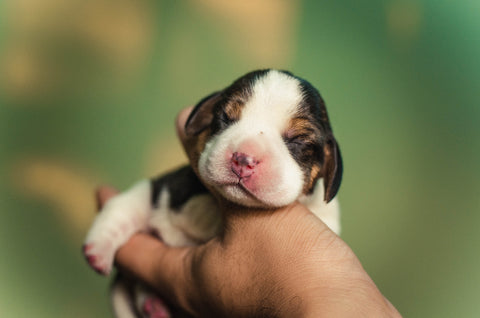
If they are taken away from their mother during this period, the puppies may have problems developing into well-adjusted, mature dogs.
Although the momma dog is highly competent at nursing, caring, and teaching her pups without much of our assistance, nevertheless we should assist both the mother and her pups in any way to make their journey as pleasant and less traumatic as possible.
I will elaborate on the necessary human intervention in all stages of puppy development below and future articles.
Sense of Sight, Hearing, and Smell
Puppies are born blind, deaf, and anosmic* at and will remain so for the first 10 to 14 days of life. Because they can’t see, hear, and smell*, newborn puppies have very little concept of their surroundings and about themselves—identity, what am I?
* At this stage, puppies can’t connect smell to things (living or nonliving). Of course, they can sniff out the air in their nostrils right after the membrane is removed and soon they seek out milk and begin to suck eagerly. Why only the teats puppies can detect? I’m afraid I don’t have the answer to that. Faith in God’s creation is what I can say.
Vocalization
The only sound the puppies can make at this point is probably whining very soft cries. Usually, the first short burst of cry can be heard after the mother removes the membranes from the pup. Other than that, there should not be any vocalization at all until they are much older (21 days old) unless they are deprived of food, warmth, or being hurt.
How you can help: Do not ignore any vocal sound made by the puppies. Investigate them immediately. Due to their needs for food and warmth from their mother, some alpha pups will push the meeker ones away from their living source. Make sure that every pup has its fair share and no one is hurt during feeding time.
Motor Skills
In a normal healthy litter, all newborn puppies are capable of crawling, sucking, licking, and withdrawing from “pain.”
Source of Food
As said earlier, the momma dog is entirely responsible for feeding her babies. Each newborn puppy will “sniff” and crawl its way to the teats shortly after its mother removes the membranes and umbilical cord.
During this juncture, the first signs of the litter's personality hierarchy status are noticeable. The mother's teats
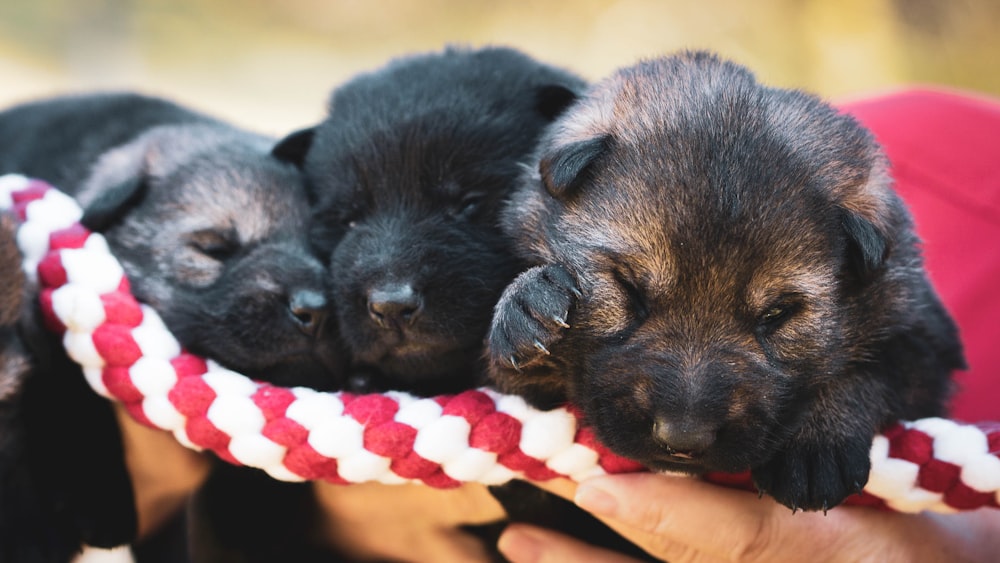
are arranged in pairs along the length of her belly, with a better supply of milk available around the middle teats region. Many will be jostling for access to these prime feeding areas. Usually, the strongest (alpha dogs) get there quickest. The less fortunate (secondary to alpha) will only have access to the outer teats, and the meeker ones (the lowest rank in the status) might be forced away from the teats altogether. The success or failure of the puppies in getting to these prime teats will have an impact on their personality.
How you can help: Make sure the whole litter is suckling properly and have access to their mother’s milk at all times, especially larger breeds nursing more than eight puppies. Dogs or puppies don’t know how to play fair, so it’s our job to make sure that none is deprived of their mother’s milk. Do a feeding rotation often and allow the meeker ones to have access to the prime areas occasionally so that they get to taste quality nutritious mother’s milk.
Source of Heat
Newborn puppies cannot generate and retain heat neither can they shiver properly. They are unable to make their hair stand on end to trap an insulating layer of air. Puppies’ heat regulation is very poor and their body temperatures fluctuate readily with that of their surroundings. A mere drop of 37°F in temperature can be a matter of life or death for the tiny ones. Therefore, contact with their mothers is vital for their survival.
How you can help: Puppies’ needs for consistent warmth are undeniably crucial and you HAVE to play an active role during this period especially in colder months. There are several ways you can keep a newborn puppy warm, from hot-water bottle to infra-red lamps (I will share more detailed methods in future breeding and reproduction post.) For now, we will focus on the natural heat that is from the mother.
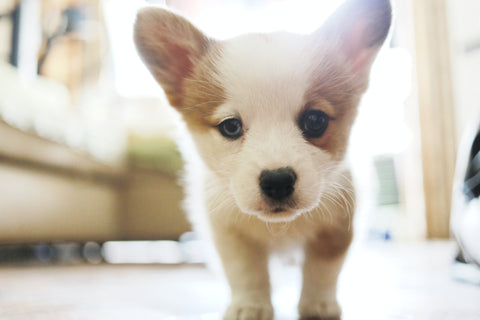
Make sure her meals and potty areas aren’t too far away from the whelping box. Assure her that her babies are away from busy human traffic or intruders so that she can eat and relieve herself with the least amount of stress. Make sure her temporary departure is no more than 20-30 minutes long. Check that there is no pup hung onto her teats while she makes her exit from the whelping box! If your dog likes to eat eggs - here is how to cook them.
Elimination
Puppies at this stage have no elimination reflexes. Therefore, it is the mother’s role to stimulate her puppies (licking their genitals) to defecate and urinate. She will then eats their feces and licks up the urine to keep the den clean and free from germs. The mother must keep her puppies clean constantly, who might otherwise die of diseases.
How you can help: Practice good hygiene habits by keeping the whelping box clean and dry regularly. If there is any debris (i.e. dry feces or milk) left on the puppies’ coat, wipe them away immediately with cotton wool soaked in lukewarm water. This is an excellent time to get the puppies used to human touch and basic grooming habits.
Sleep and Rest
There aren’t many activities you can expect from newborn puppies. Just like babies, puppies have an amazing capacity for sleep. Well-fed puppies do little other than sleep and root to the teats for milk for the next 10 days.
My advice to beginner breeders is to enjoy this moment to the fullest, take it all in, and be grateful for the wonderful birth. You do need it because in weeks to come, you will be busy managing those furry little “monsters” from feeding to training.

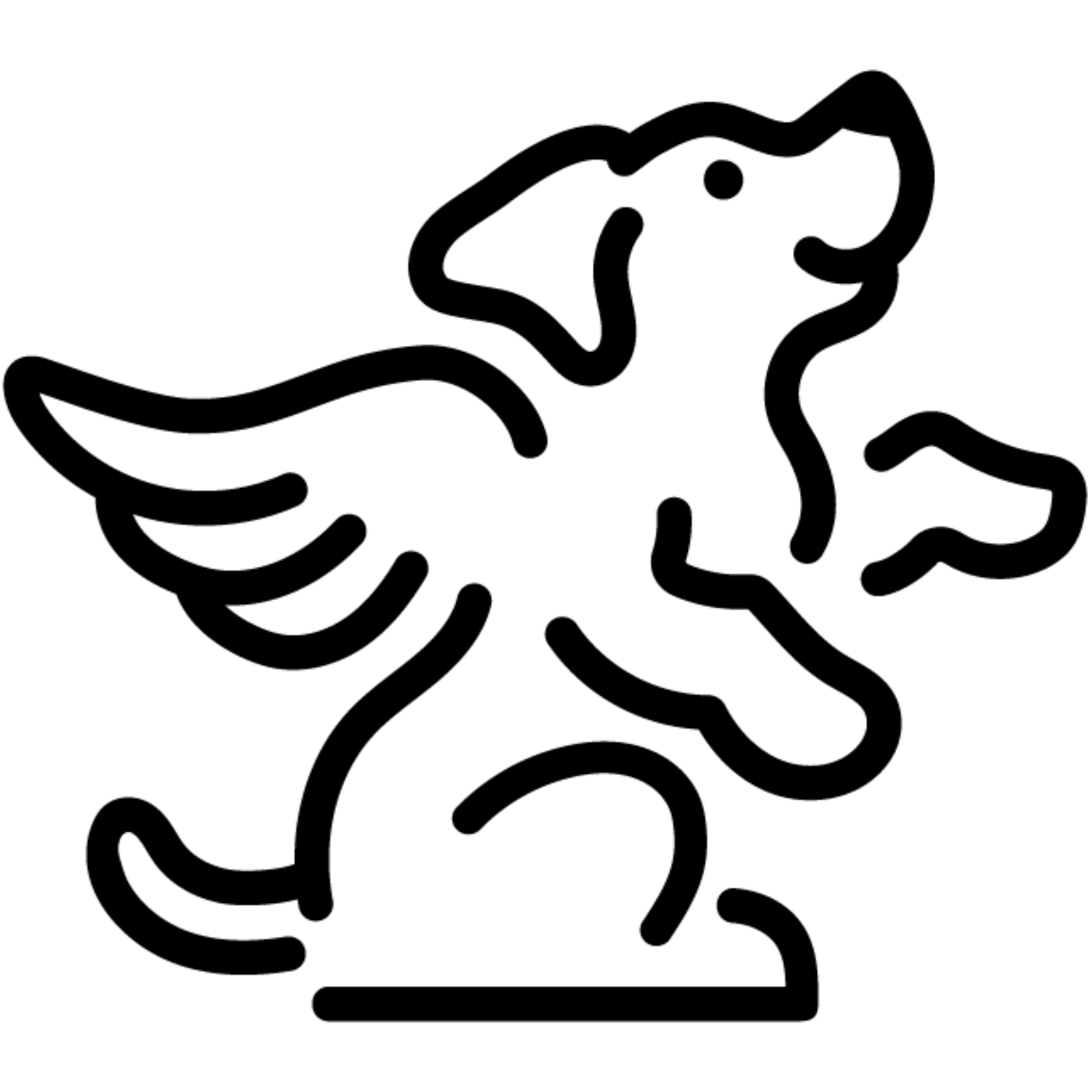

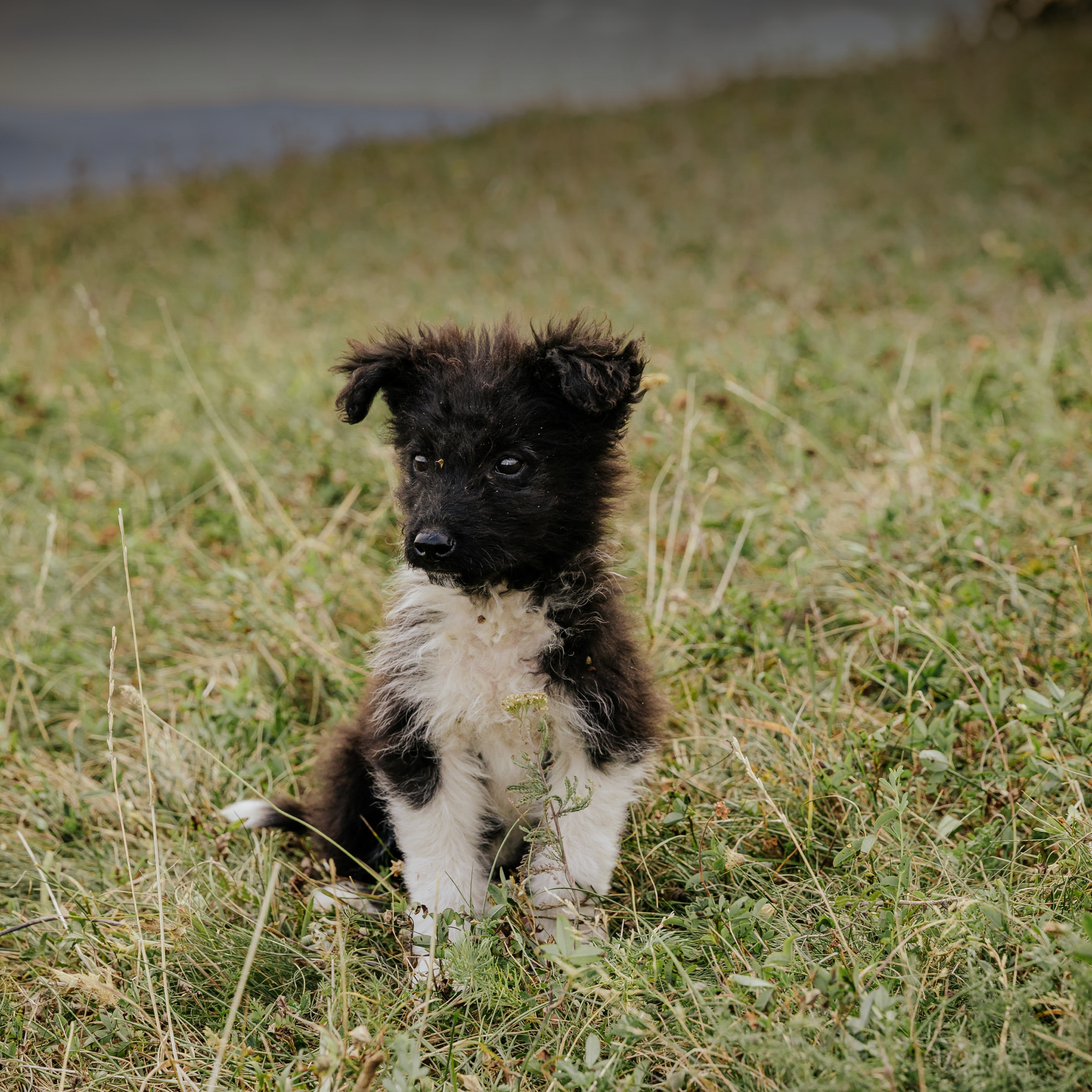
Share:
The Rover 2 Dog Carrier
The Power of Pets for Healing Seniors